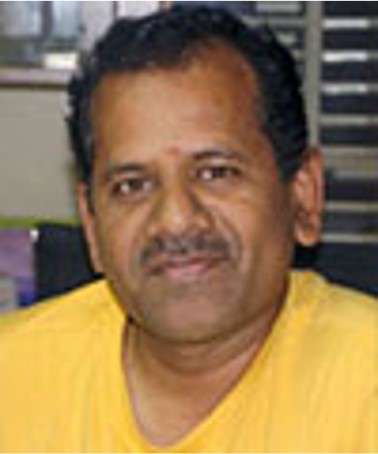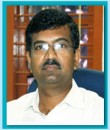Project
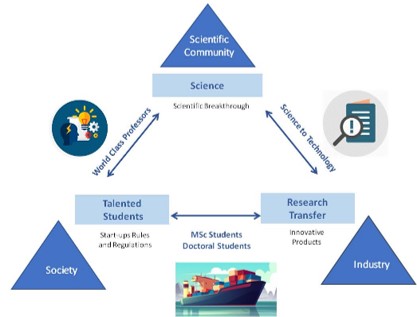
The research activity is divided into Five work packages (WP). These WP follow a concept development process:
WP1 Maritime Digitalization:
Digitization provides a contemporary opportunity to re-think, re-configure, and optimize current business processes. Maritime transportation also typically involves multiple actors, such as agents, terminal operators and other port services, as well as ships, all providing different types of infrastructure for their immediate collaboration partners. Digitization of all key assets across the common infrastructure creates the foundation for higher predictability. This includes inter-organizational re-engineering by moving operations and decision-making between different actors.
WP2 Autonomous Vessels and Robotics:
The surface and submersible robots allow humans to explore the ocean in a variety of innovative ways, lowering costs, improving efficiency and reducing the risks of marine operations. Marine robotics is rapidly sailing toward its ultimate goal with full autonomy. The autonomous systems the centre is aiming designed to operate independently and possible to deploy at all depths for search and survey, make on-the-spot decisions with no direct human control.
WP3 Advanced Ocean Analytics ( AI, ML & Big Data):
The current research challenges and trends tied to the integration, management, analysis, and visualization of objects moving at sea which are particularly critical in the maritime domain, where online tracking, early recognition of events, and real-time forecast of anticipated trajectories of vessels are crucial to safety and operations at sea. The objective is to employ Marine IoT, AI, ML & Big Data for precise maritime forecasting and decision-support systems.
WP4 Smart sensing (IoT) and Communications:
The advanced IoT based marine environment sensing will be designed to control some objects, devices, or equipment within the monitored marine environment, in order to adjust some physical and chemical parameters so as to improve the marine environment. While the design, development, and deployment of an IoT-based marine environment monitoring and protection system is needed to address some critical issues including autonomy, adaptability, scalability, simplicity, and self-healing, following requirements specific to the harsh marine environments should be considered.
WP5 Next Generation Smart Ports & Navigation:
Digital Twins: Concept for Smart Systems which will enable users to develop data-enabled intelligence in the system. The data we collect from the system and the date generated by the digital twin are able to help us to proactively make effective decisions. Digital twin simulation would allow ports to create testing scenarios for possible disruptions to operations, including natural disasters and extreme weather. E-Navigation: E-Navigation incorporate new technologies in a structured way and ensure that their use is compliant with the various navigational communication technologies and services that are already available, providing an overarching, accurate, secure and cost-effective system with the potential to provide global coverage for ships of all sizes.
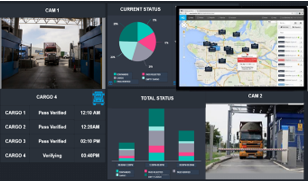
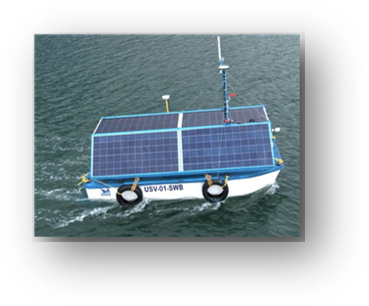
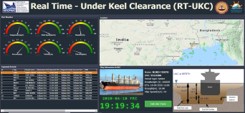

Expected deliverables of the research
Publications and visible output
The main aim is to promote multidisciplinary high impact research publications of current research and technology that have the potential to contribute to the growth and development of both the marine technology and maritime sectors. The research works that are proposed are of globally competitive and of significant contribution to marine technology and maritime industry. The research publications are aimed at high impact journals that of higher order h-index.
The second visible output will be to address the Industry sector where there is a gap in awareness of state of art technology and its applications. This will be addressed through tailor made workshops, training programs, webinars and technology newsletter and annual reports.
The third outputs aimed in developing commercial patents since most of the solutions are soft and hard products. The products do have universal applicability and the commercialization adds value through national, regional and global level. Through the above outputs the centre will have high impact visibility both at national and global level.
Manpower development
The problems the industry faces are becoming more and more complex, and their solutions require critical thinking and creativity, while the co-operation with experts from other disciplines and various levels of education is a must. This requires strengthening of the already-strong co-operation between industry and academia on development of education towards the needs of ever-changing society and lifelong learning. The programme of study aims at building the capacity of future engineers to enable advancements in the development and operation with far-reaching impact on techniques necessary for ocean exploration and exploitation.
The program will promote international exchange programs with collaborating universities. Currently there are active international exchange programs through Erasmus Mundus program and this will be strengthened through the common areas of academic and research interest. Online teaching programs similar to BSc in Data science will be introduced on Digital Marine and Maritime systems. The courses will be devised to cater to industry practitioners, seafarers, Port engineers and decision makers.
Internationalization
- The industry continues to face the challenges of globalization at increasing scale it is essential to continuously look for ways to improve efficiencies. Shipping companies and port operators look for smarter ways to deliver against these expectations. Digital and Smart technologies increase efficiencies, improve safety and improve ROI for ports and vessels alike. Research & Development in the maritime sector is in fast phase globally and there are more interactions between academia and industry to promote the efficiency. In the present proposal some of the key factors that will promote globally are international collaboration and education programs.
Current status
- Compilation and collation of baseline information required for the Work Packages is currently on-going.
- Approach and Methodology being developed for Maritime Digitalisation, Data analytics and Digital Twin system development.
Collaborations
International Collaborations
Prof. Dr.-Ing. Günter Strunz, Head of Department, German Aerospace Center (DLR), German Remote Sensing Data Center Geo-Risks and Civil Security, Oberpfaffenhofen, Germany.
Dr Holden Li, Assistant Professor School of Mechanical and Aerospace Engineering, Principal Investigator, Temasek Laboratories, Nanyang Technological University, Singapore.
Prof. Vladimiro Miranda, Associate Director, Institute for Systems and Computer Engineering, Technology and Science (INESC-TEC), Porto, Portugal Prof P Nithiarasu, Research Director and Deputy Head, College of Engineering, Swansea University, Swansea, UK
- External international site links for project - https://www.altmetric.com/details/85339694
International education programs.
For now, indicate whatever has been planned. Once some of these happen they can be reported for portal update
Industrial collaborations
- Middleware for Ship sensor integration for optimized voyage planning and Just In-Time (JIT) operations - Integri Marine and Offshore Services Pvt Ltd, Mumbai, India.
Societal impact
New technologies and concepts such as big data, cloud computing, mobile computing or self-steering processes and services are more and more penetrating the areas of social life and are becoming increasingly important in economic processes. Industry 4.0 focuses on the linking of industrial processes and technologies, as well as the related business processes with the new information and communication technologies (ICT).
As in industry, the maritime sector also provides artificial intelligence to the digitized objects by means of programmability, storage capacity, sensors, and networking, which will allow an increase in the efficiency of ship operation. With the use of Big Data and digital transformation, the fleet controls can be optimized, whereby costs are reduced and the environmental protection is improved.
Traffic control and traffic flows can be optimized by using the ship’s operating data, thereby avoiding critical situations and thus reducing the risk of accidents. In addition, strengthening of the co-operation between industry and academia on development of education towards the needs of ever-changing society and lifelong learning.
Sustenance statement
NTCPWC setup on sustainability model already in the process of working on models such as undertaking more projects directly with major ports, minor ports, other Indian and global sources in the key areas where capital and operational capability has been created.
Provide learning opportunities to improve technical expertise of institution personnel by effective training and continuous lifelong learning in NTCPWC.
Develop indigenous effective software, technology and patents from the projects being funded Commercialize ideas emanating from projects.Given that the sustainability model is already in practice in NTCPWC, it will be further enhanced to meet the requirements on the sustainability of the proposed program plans which includes maintenance of lab facilities and man power and other associated activities working efficiently and sustainable.
Technical/ Scientific Progress
New work done in the project
Next generation e-Navigation smart app – Solution based on hand held smart devices based day and night navigation for National waterways. link. This system requires only minimal infrastructure and more importantly addressed with low cost centralized Control Centre providing tracking of 500 vessels. At present, there are only few players globally providing such solutions on subscription basis with no facility for tracking through centralized Control Centre. This is one of visible output of SMATE that is already in the process of commercialization.
Indigenous VTS software development was carried out successfully making use of sensors from V.O. Chidambranar Port Automated Identification System (AIS), VHF, RADAR, etc. The system under development successfully managed to integrate AIS, ENC Charting, CCTV and VHF recordings. At present RADAR integration is ongoing and with integration of RADAR the system development is complete and ready for deployment. The system totally developed using Open Architecture and also capable enough to integrate both Analog and Digital sensors outputs following international standard data formats. The system follows IALA standards and it will soon get the necessary certification from IALA and SOLAS.
Infrastructure developments
The procurement of software, hardware, instrumentation and sensors are already completed and expecting the delivery soon. In addition, lab space development in progress at Port Centre Building of Discovery campus. This includes development of Immersive Lab facility, Marine IT and Communication Laboratory. The labs will support Undergraduate and Postgraduate. PhD students with startup projects and necessary guidance as well as help startups in developing the product up to proof of concept.
Output
Presentation on e-Navigation to officials of Inland Water Authority and to Engineers of Inland Water transport.
Mobility
Visits planned for PI, co-PIs, international collaborators and students (both inbound and outbound)
Visit Planned between Feb – September, 2022 based on the Pandemic situation to Antwerp, Belgium, Norwegian University, DLR German Space Agency and NTU, Singapore. Erasmus Mundus students were expected during summer break July – August 2022.
Relationship
Industrial Engagement
Discussion on-going with ICS Technologies, Italy on hybrid radar technology for Vessel Traffic and Coastal surveillance systems by enhancing the existing indigenous VTS systems.
University Engagement
Joint experiment to develop educational program on Maritime Digitalization, Ocean Data analytics and use of Marine Information, Automation and Communication systems for Ports along with Indian Maritime University and Nanyang Technological University, Singapore
Updates
Relevant Updates
International Workshop planned sometime during April 2022 on Maritime Digitalization and Autonomous systems. The Agenda of the program is at finalization stage.

